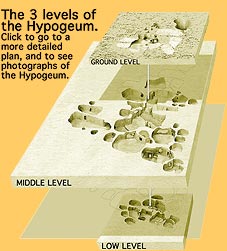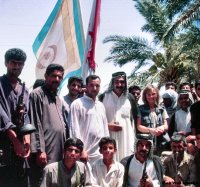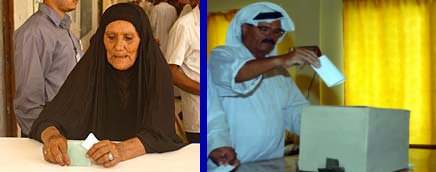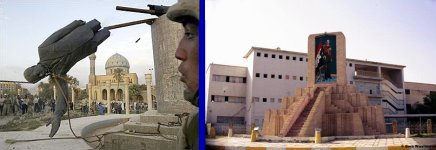Forbidden Journey:
Building Democracy in Iraq
 .
.
 |
.... |
Summer
1999. There were million reasons for Saddam Hussein to keep the Westerners
out of the hot spots in Iraq, especially those in the South, after the
Persian Gulf War of 1991. Somehow I was able to convince his government
to let me visit many of them, often under a false pretense, to document
the life, which was about to disappear forever. |
The
Marsh Arabs, these very few who were not killed by or did not flee to the
neighboring Iran from Saddam’s regime, welcomed me with their guns. For
them, democracy meant to be left alone.

What
is democracy? While this concept is easily
“felt” by any Westerner experiencing its benefits in his/her native country
for years, it is quite difficult to define “democracy” for those who have
been living their whole lives in a totalitarian system as, for example,
under the regime of Saddam Hussein or a communistic rule.
I should
know, because I had tried many times to convey the message of democracy
to the Iraqi people in Summer 1999 when Saddam Hussein allowed me to visit
his country and granted me an almost unrestricted access to the people
and places of the South. After numerous unsuccessful attempts at describing
principles of democracy, especially to the generation of young people born
in the 1970s, by using conventional ways learned in my life as an anthropologist
and a scholar in general, I had to change my approach. Since desperate
times call for desperate measures, I used President Clinton’s affair with
Monica Lewinsky as the means to explain the concept of the “freedom of
the press.” While each and every Iraqi knew about the President’s marital
indiscretion in details, none of them could even think about any personal
information concerning their President, Saddam Hussein, freely disclosed
in the Iraqi press to his subjects. That day, no longer, my companions
blamed the U.S. and embargo for the limited and censored access to the
mass media.
This
presentation is designed to explain difficulties in building democracy
in the country where this concept has been associated by many with “anarchy,”
a freedom to do whatever one wants, whenever one sees it fit. Breaking
traffic rules is an example of such a perception of democracy i.e., freedom
of driving in four directions on one-way street! By the same token, “equality”
has been often regarded in terms of “equality in poverty and suffering”
and “security” as the fear of leaving one’s house because Saddam’s henchmen
were everywhere.
The
people of Iraq took the first major step toward the democracy: they went
to vote in an election which, as imperfect as it was, offered them more
than one choice. They did it, because they wanted for their voices to count
and be heard. Now, as long and painful as this process might be, they must
learn that democratic benefits come with individual responsibility. Saddam
Hussein is no longer there to censor their dreams and actions, they must
do it themselves in the atmosphere of mutual understanding, tolerance,
and respect. Once Iraq was a cradle of civilization – this time she has
a chance to become a cradle of democracy.


"Equality
in poverty and suffering". Wherever
I went, discussions about democracy followed. These men in Affek argued
with me that Saddam Hussein would let everyone to have an unlimited access
to information thru Internet and satellite TV, if not for the embargo.
Since majority of people in Iraq could not afford computers or TV, it would
be unfair to allow the very few enjoy and possibly manipulate “free information”
of the American propaganda.


Under
Saddam Hussein people voted with their blood: either in his favor in official
polls by pricking their thumbs before pressing them on the ballot or by
opposing his actions in any shape or form which led to their blood being
shed.

Under
the American occupation people voluntarily risked their lives voting for
a new government, the democratic one, for which the Iraqis’ blood became
the founding stone.


Saddam
Hussein, “the king of Mesopotamia,” met his end as many other dictators
before him. He should be thankful that ancient laws are no longer reinforced
in this cradle of civilization since his death could have been a very long
and a painful event.
|

